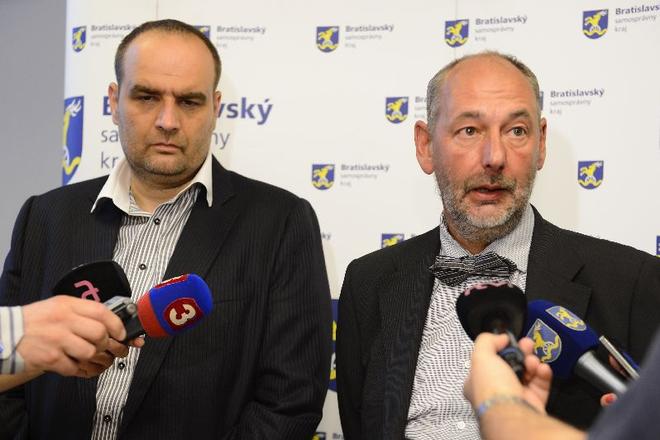EVEN THOUGH the Slovak Economy Ministry calls the construction of a crude oil pipeline linking Slovak and Austrian refineries a strategic project, Bratislava and its citizens oppose the plan, fearing possible negative impacts on the environment and their health. Public opposition to the pipeline has nearly halted preparation of the Bratislava Higher Regional Unit’s (VÚC) master plan, with the pipeline’s route remaining the core problem.
The new master plan, prepared by the Bratislava VÚC and scheduled to be adopted in autumn, does not mention the pipeline, even though the Economy Ministry required the incorporation of the pipeline into the new master plan. Bratislava VÚC head Pavol Frešo met with Economy Minister Tomáš Malatinský over the draft master plan on July 17, with both agreeing that the document will mention the intention to build the pipeline, but without specifying a route. Discussions on the project and possible routes will follow.
“We expect a proactive approach from the Economy Ministry as well as from [pipeline operator] Transpetrol in order for the pipeline to start being actively discussed with the public, since this is a very sensitive construction,” Frešo said in a Bratislava VÚC press release issued after his meeting with Malatinský.
The plan
The plan is to interconnect the Druzhba pipeline with the Austrian pipelines ending in Schwechat. The length of the pipeline could range between 80 and 150 kilometres depending on the route, and the Slovak ministry has estimated the cost at €70 to €110 million. The project was conceived by BSP Bratislava - Schwechat Pipeline, a company launched in 2003 as a joint venture to build and operate the new pipeline. The Slovak company Transpetrol, involved in the transportation and storage of crude oil, holds a 74-percent share in the company, while Austrian OMV holds 26 percent, the company writes on its website.
The route of the pipeline on the Slovak side remains a problem as the proposed routes cross either Bratislava or protected areas, including Žitný Ostrov, the biggest drinking-water reservoir in central Europe.
The project has received criticism from Bratislava citizens as well as municipal offices. The Bratislava VÚC does not want the pipeline to cross populated areas of Bratislava, with Frešo arguing that in Austria the route of the pipeline goes around protected areas. The Bratislava city council turned down the project in June.
A civic association against construction of the pipeline, Nie Ropovodu (No to the Pipeline), has already been launched. The civic association Mladá Petržalka launched a petition against the pipeline on July 18.
Malatinský has promised to attend a public assembly scheduled for autumn, at which he is to explain why it is necessary to construct the pipeline as well as the potential routes.



 Pavol Frešo (left) and Economy Minister Tomáš Malatinský (source: TASR)
Pavol Frešo (left) and Economy Minister Tomáš Malatinský (source: TASR)